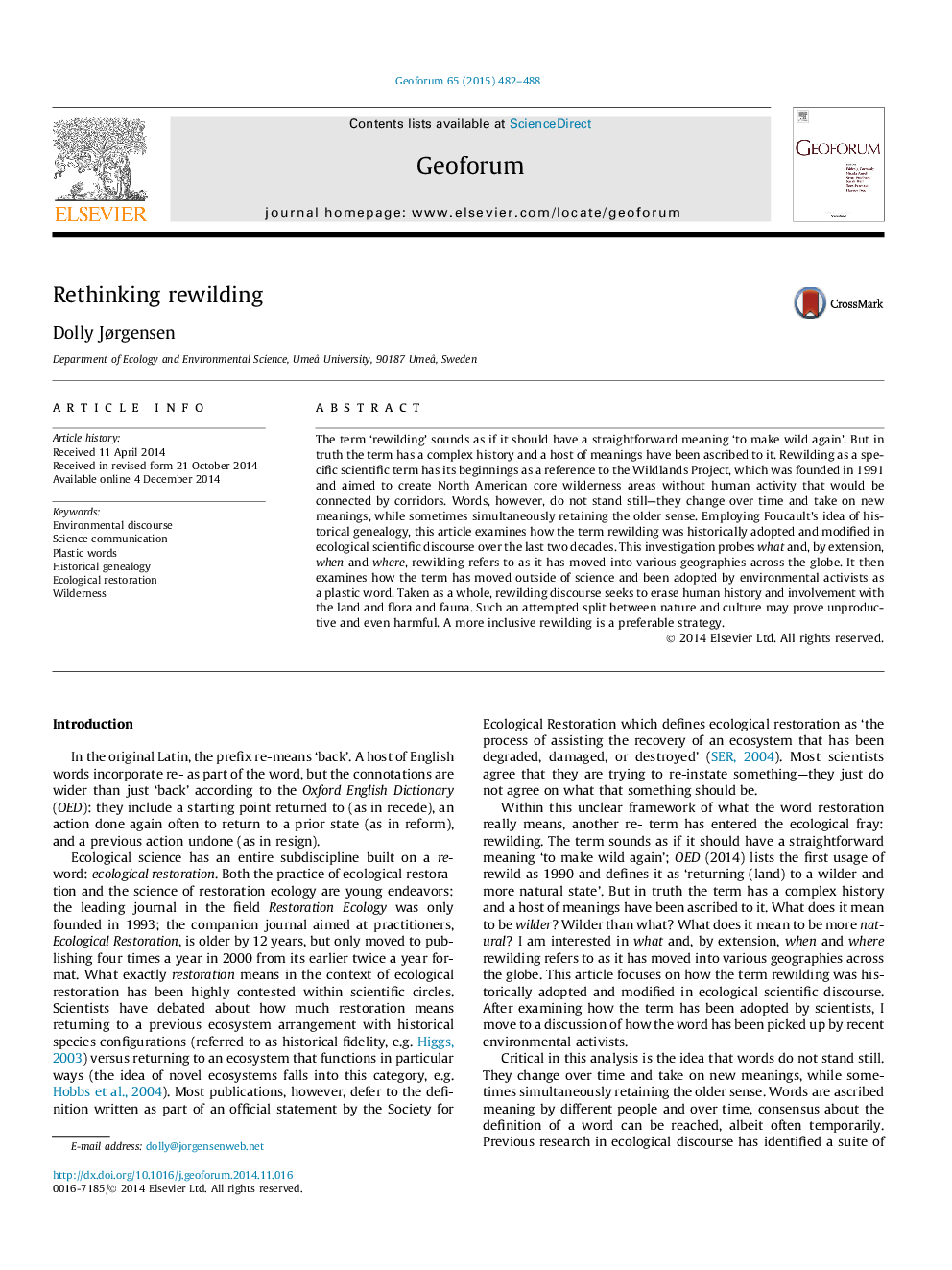| Article ID | Journal | Published Year | Pages | File Type |
|---|---|---|---|---|
| 5073841 | Geoforum | 2015 | 7 Pages |
Abstract
The term 'rewilding' sounds as if it should have a straightforward meaning 'to make wild again'. But in truth the term has a complex history and a host of meanings have been ascribed to it. Rewilding as a specific scientific term has its beginnings as a reference to the Wildlands Project, which was founded in 1991 and aimed to create North American core wilderness areas without human activity that would be connected by corridors. Words, however, do not stand still-they change over time and take on new meanings, while sometimes simultaneously retaining the older sense. Employing Foucault's idea of historical genealogy, this article examines how the term rewilding was historically adopted and modified in ecological scientific discourse over the last two decades. This investigation probes what and, by extension, when and where, rewilding refers to as it has moved into various geographies across the globe. It then examines how the term has moved outside of science and been adopted by environmental activists as a plastic word. Taken as a whole, rewilding discourse seeks to erase human history and involvement with the land and flora and fauna. Such an attempted split between nature and culture may prove unproductive and even harmful. A more inclusive rewilding is a preferable strategy.
Related Topics
Social Sciences and Humanities
Economics, Econometrics and Finance
Economics and Econometrics
Authors
Dolly Jørgensen,
